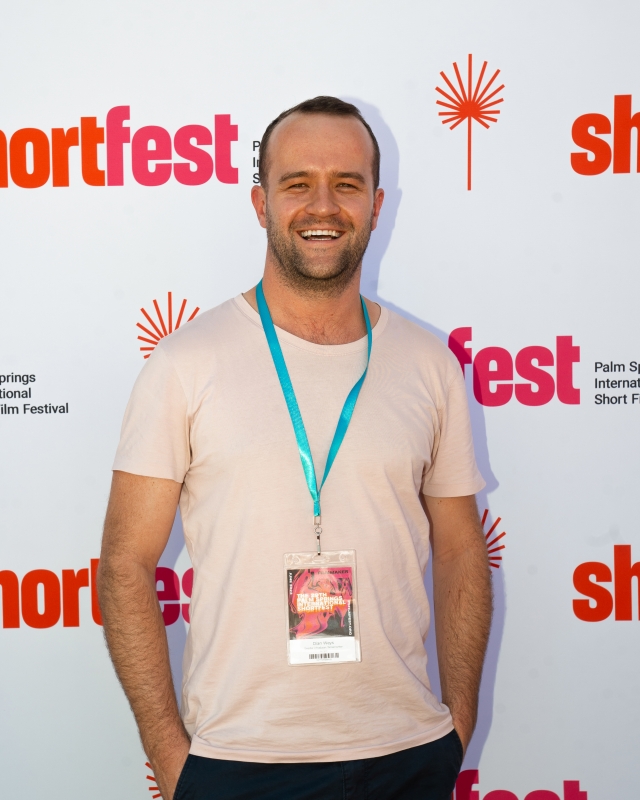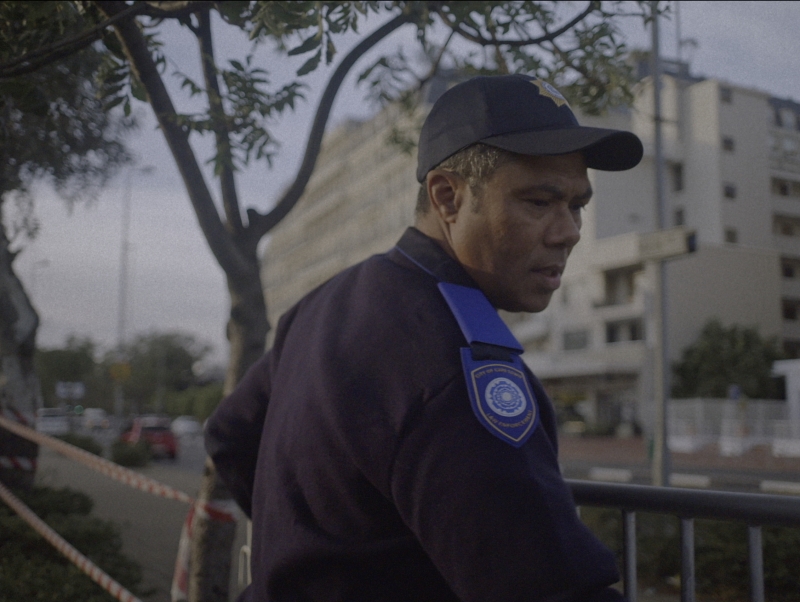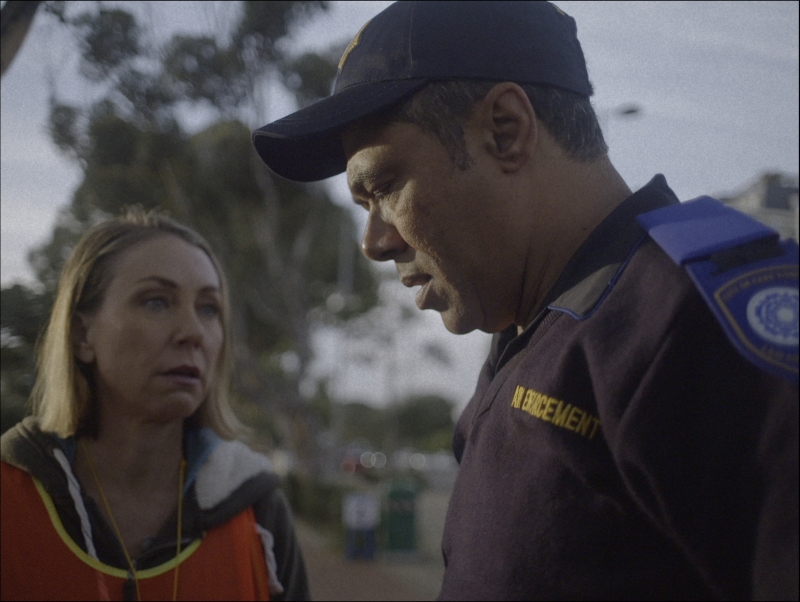|
|
||
|
Pro Tools
FILMFESTIVALS | 24/7 world wide coverageWelcome ! Enjoy the best of both worlds: Film & Festival News, exploring the best of the film festivals community. Launched in 1995, relentlessly connecting films to festivals, documenting and promoting festivals worldwide. We are currently working actively to upgrade this platform, sorry for the inconvenience. For collaboration, editorial contributions, or publicity, please send us an email here. User login |
Vanessa McMahonVanessa is a novel writer, screenwriter, rep and a film producer. She shares her discoveries and film surprises. :-)
 'GLORIA' (2013) at 12th TIFF. Interview with Sebastián Lelio.
When I met Sebastián Lelio it was under the influence of ‘Carpathia’ vodka and in the bowels of a dark Transylvanian nightclub. Sebastian, myself, and a group of others were dancing our booties off to this summer’s club music hits. None of us knew each other’s name, but we were all smiling cheek-to-cheek, dancing and bonding. We were happy and free celebrating life beyond worldview, career or age. The next day I went to see Sebastián’s film ‘Gloria’ (2013); this one I had been waiting to see for months after having missed it in Berlin, where it was met with rave reviews. And while watching the stunning ‘Gloria’ (played by Paulina García) live through the hardships of being single starting life over in her 50’s, seeing her light up the dance floor from club to club in Santiago, Chile, I couldn’t help but see myself in her; I couldn’t help but see all of us from the previous night in ‘Gloria’. I felt special in a way, like I had lived the film the night before seeing it. How did writer/director Sebastián Lelio get the female character so well, let alone one experiencing midlife crises? Someone just quoted this to me today so it’s fresh on my mind… Remember Jack Nicholson's line from ‘As Good As It Gets’...Someone asks him, "How do you write women so well?" and he says, "I think of a man and I take away the reason and the accountability." Is it possible that men can write women better than themselves and women men better than themselves? During the Q & A after the screening of ‘Gloria’, a female audience member posed this question to Sebastián: "Why do you always write films about women in midlife crises? I’d like to see a movie about a man having his midlife crises." Sebastian replied: "Well, then make one." :-) Read my interview with the smart, sharp, passionate and visionary Sebastián Lelio.
ME: People often ask you why you made a film about a woman having a midlife crises. Is the film inspired by your mother? Or do you feel as a writer/director it is your mission to give voice to all kinds of people? SEBASTIAN: I think film is not so much about 'expressing oneself', but more about just 'expressing' something that's already in the world- a certain idea of the world, a certain feeling, things that hopefully haven't found their "way out" yet- and is the film the one that`s able to point it out or name it or make it "appear" for the first time at least in a new way or under a new light? ... Gloria is not a film about my mother, though my primordial contact with that generation is my mother. Maybe Gloria is a film about our individual freedom. ME: Who is Miss Gloria to you? And who has your audience expressed Miss Gloria is to them? SEBASTIAN: I guess that's the question that every scene makes in the film: "Who is Gloria?" I like the idea that that's a question that's impossible to answer in a definitive way. I guess the entire film is somehow that question... What astonishes me is that many people, from many different nationalities, gender and backgrounds have told me "I am Gloria". That's amazing. I guess there is such a great humanity in Paulina García's character that people just see in her the reflection of themselves. ME: Would you say that Gloria is an Everywoman for Chilean society today or for the world? SEBASTIAN: Gloria is just one woman, but it seems that almost every woman can see herself in her. ME: Was it difficult to cast the film or did you write the part for Paulina Garcia? SEBASTIAN: The film was specially written for Paulina García, made like a glove for her... She was always Gloria. She is a marvelous actress. I've always admired her. This is the first time someone offered her a leading role in cinema. I'm very glad that she's receiving all this attention. She's exceptional. ME: It must have been a really fun movie to shoot. Was it difficult and do you have any anecdotes from when you were filming? SEBASTIAN: It was fun, in the strange painful way that a shooting can be fun. The most difficult thing was to be always alert not to fall into the clichés. The film is always walking over thin ice... Coming and going from the common places. We made a film about "everyday life" issues, and to be able to elevate all this "normality" into cinema (I hope we did!) was the hardest part of all. ME: You have made a number of films about very strong, liberal and sensual independent women. Is this how you see women today and do you believe that we are headed for a time where women will more and more be represented in this way, as strong and independent? SEBASTIAN: We should all be strong and independent. Women and men. I see weakness and fear in both sides, and also great, deep bravery in women and in men. But women... they save the world. And not only women, but the feminine dimension inside all of us. I think maybe that's why also men can relate so easily to Gloria. There is something about the feminine that we've all forgotten. As the Jim O'Rourke song goes: "Women of the world, take over, cause if you don't the world will come to an end, and won't take long." ME: Your film ran in competition at the 63rd Berlinale. It was listed as a favorite this year as the best film. Has the Chilean audience reacted to Gloria as well as international audiences? SEBASTIAN: The reception in Chile has been amazing. Much more than we expected. Now it’s entering into it's 7th week on screens. The film has been received with much enthusiasm by the audience, but it also has become a social issue. Some people are using the word "Gloria" to refer to the problems of that generation. ME: Gloria most recently screened in Cluj at the 12th Transylvania International Film Festival (TIFF). How was it to show your film there? SEBASTIAN: I love TIFF. I admire Romanian cinema, so it’s always good to go to Transylvania and catch what’s going on with the new Romanian films. Besides, I'm an old friend with TIFF. My first film, ‘La Sagrada Familia’ (2005), won the main award in 2006. Then, I came back as a member of the jury. Also ‘Navidad’ (2009) and ‘El Año del Tigre’ (2011) (and now "Gloria") have been screened at TIFF. It has a unique atmosphere. ME: There has been a recent surge of Chilean cinema on the international film festival circuit. It's cliche to call it 'New Wave' but what would you say is happening with new Chilean cinema? Is the artistic voice of the country and its place on the map for the arts increasing in quality and content do you think? SEBASTIAN: This "recent" surge of Chilean cinema is the tip of the iceberg of a process that started in 2005 when the first films from the new generation appeared. After that we have gone through a process of learning, growing and discovering, as you say "our voice". Now it seems all this wave is giving stronger fruits. I would say that it is hard to tell what defines the new Chilean cinema, but it’s a diversity of themes and expressive forms. I'm sure all this expansion it will continue. There is a lot of creative energy in Chile now (many new directors, producers, etc). You can see this explosion in the other arts, socially also, which is very important. It is not casual that all this exploded after 20 years of democracy. Is part of the same and complex socio-historical process. ME: You currently live in Berlin. What is your next project? SEBASTIAN: I'm working in two different scripts. One of them has been recently supported by the Berlinale Residency (Its working title is ‘Greeting to the Sun’). But this year, besides writing, it will be a year for the promotion of ‘Gloria’ in festivals and in many places where the film will be commercially released. Interview by Vanessa McMahon
Paulina García in 'Gloria' (2013) Writer/Director Sebastián Lelio 20.06.2013 | Vanessa McMahon's blog Cat. : 'GLORIA' (2013) at 12th TIFF. Interview with Sebastián Lelio. Interviews
|
LinksThe Bulletin Board > The Bulletin Board Blog Following News Interview with EFM (Berlin) Director
Interview with IFTA Chairman (AFM)
Interview with Cannes Marche du Film Director
Filmfestivals.com dailies live coverage from > Live from India
Useful links for the indies: > Big files transfer
+ SUBSCRIBE to the weekly Newsletter DealsUser imagesAbout Vanessa McMahonThe EditorUser contributions |

























.jpg)
 McMahon Vanessa
McMahon Vanessa 


